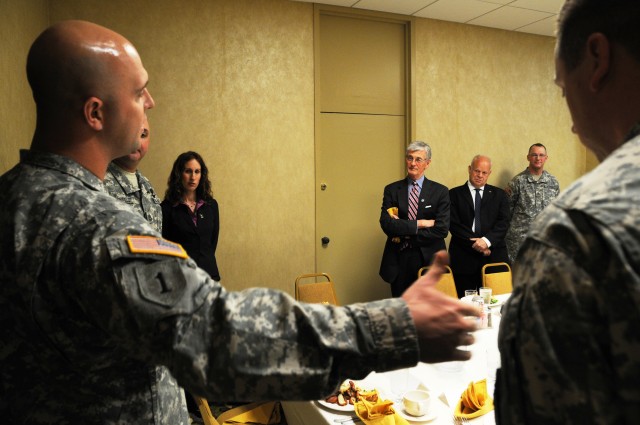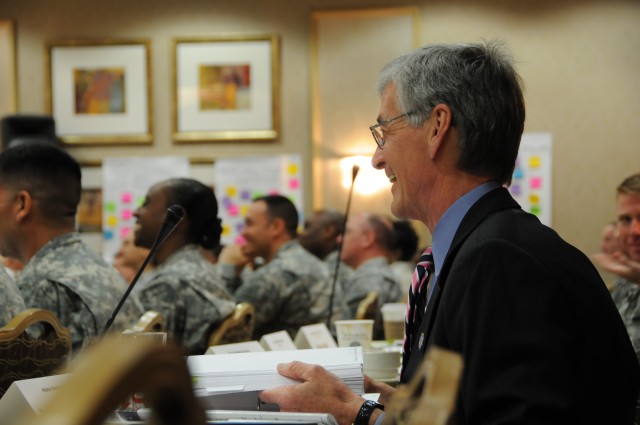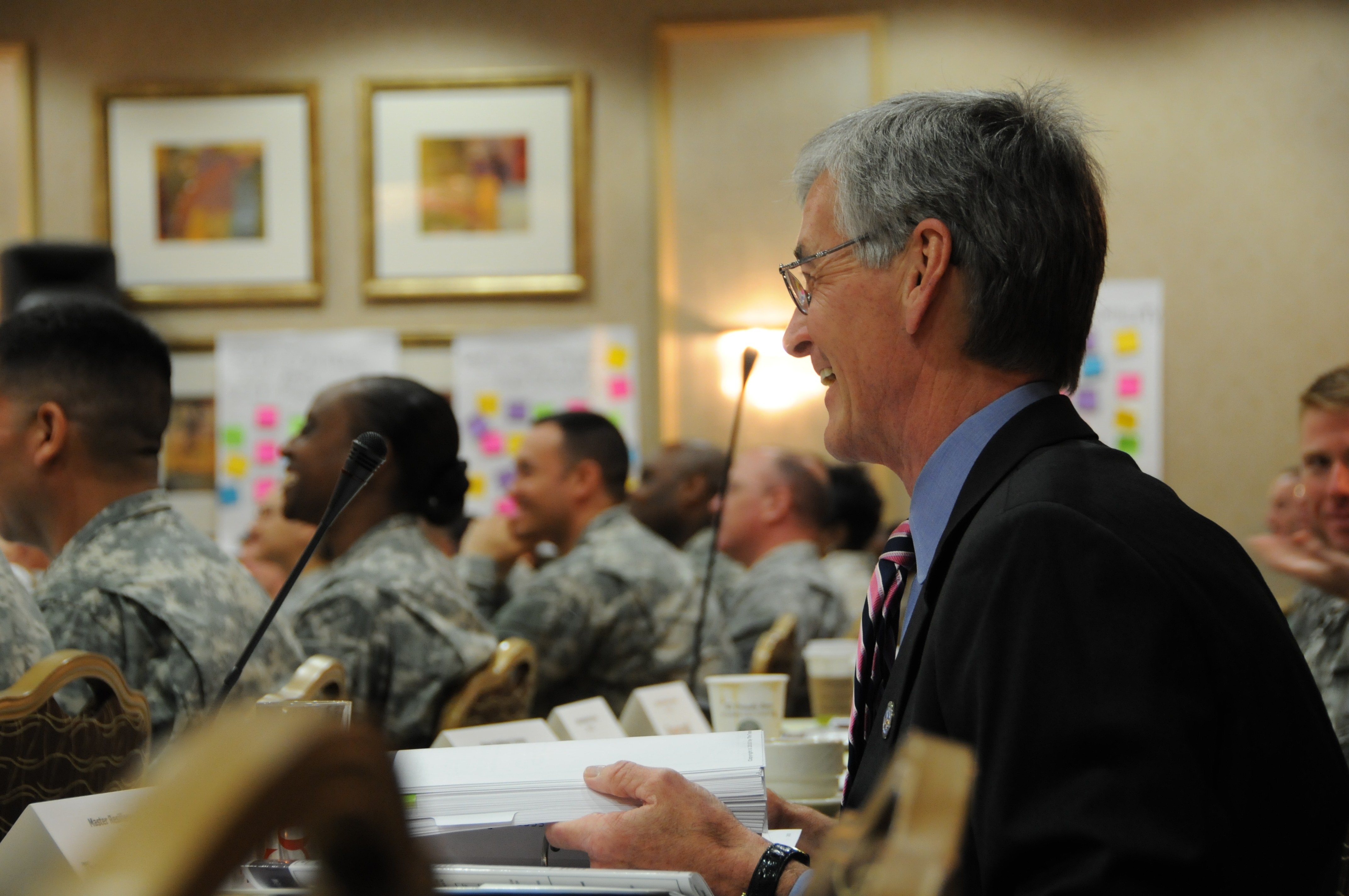WASHINGTON (Army News Service, April 14, 2010) -- You are a Soldier, and your platoon is assigned to manning a highway checkpoint in Iraq. Yesterday, a car refused to stop despite your team's warnings.
According to the rules of engagement, your platoon opened fire on the vehicle, killing those inside. Upon investigation you found no evidence of insurgent affiliation or weapons inside the car. Now, laden with guilt, you are not sure you can continue doing your job. What do you do'
Giving Soldiers tools to deal with realistic scenarios like this one are central to the Army's Master Resilience Trainer course, or MRT, in Philadelphia where Secretary of the Army John McHugh visited Tuesday.
During his first visit to the course, McHugh listened in on classes, spoke with students and instructors and got a taste of the Army's newest wellness initiative.
"Our Soldiers are under a tremendous amount of stress as are their families, but the skills they take away (from the course) will help them as Soldiers, and will help the Soldiers that they bring these skills to, not just in times of war, but for the rest of their lives," McHugh said in an interview. "To have the chance to make that kind of difference in someone is very exciting."
McHugh said he was encouraged by the amount of excitement the Soldiers in the course displayed about the material they were learning.
"It's always a positive thing to see what we've spent so much time on and talked about, in place and working," McHugh said of the MRT program. "The thing that really struck me most was how you could literally feel the enthusiasm, and after six days, the difference it's made in these Soldiers' lives," he said.
Part of the Comprehensive Soldier Fitness approach, MRT students learn about the ability to 'bounce back' from adverse situations and how to teach their Soldiers to do the same.
This is core to the Army's new perspective that the same emphasis placed on physical fitness should also be placed on mental fitness.
"I believe very firmly that this will improve the lives of Soldiers," said Karen J. Reivich, co-director of the University of Pennsylvania resiliency program and primary instructor for the Army's MRT course. "This program is about changing the trajectory of a person's life."
Reivich, who holds a doctorate in resiliency psychology and is the co-author of "The Resilience Factor," helped tailor the course for Soldiers but explained that she didn't need to make many changes. "This course is about people," she said.
She explained that while many Soldiers are skeptical upon arrival at MRT with pre-conceived notions of a 'soft' course, Reivich argues otherwise.
"This is not a hug-it-out' program," reassures Reivich, "this is about adding tools to a Soldiers' toolkit, so that he or she is equipped to face problems and challenges."
Reivich said every day during the course, Soldiers tell her how they will use these skills with their Families and in their personal lives.
For example, Master Sgt. Sherri L. Horiel, a wellness council noncommissioned officer in charge with the 555th Engineering Brigade, said MRT has saved her marriage.
Now a facilitator, or instructor's assistant with the MRT program, Horiel first attended the course in November, and claims that it changed her life.
"It really helped me slow down and pay attention to what was being said, and to have more productive conversations with my family and the Soldiers around me," Horiel said.
Married since 2001, Horiel and her husband, both in the military, were both deployed last year to different locations.
"We saw each other maybe a total of seven days over 15 months," she explained.
Horiel said that before she attended MRT, she and her husband really weren't talking, but they couldn't identify what the issue was. Instead of arguing, she said, it was easier to not say anything to each other.
"Because we'd spent so much time away from each other, we'd really lost the ability to effectively communicate," she said.
She said that being separated from her spouse, their lives still continued to go forward, and coming back together was like starting all over again. So Horiel used some of the skills she'd learned in MRT on how to efficiently listen and communicate, and applied them to her marriage.
"It really opened me up, not only personally, but professionally," Horiel said.
She said by using the MRT tools, she was more receptive and actually listened to what her husband was trying to say.
Horiel said the course has also changed her relationship with her teenage son. He's opened up to her more now that she uses a technique called active-constructive responding -- a way to show the person you are speaking with that you are truly interested in what they are saying.
"I've learned a lot about my son," she said.
And while the course is designed to produce more effective Soldiers, most say it has foremost improved them personally.
The end-game goal is to have every drill and platoon sergeant in the Army qualified as MRTs, and the course has just been approved as an additional skill identifier, which will provide Soldiers with the training with more opportunities.
A new MRT location opened April 5, at Fort Jackson, S.C., to meet the demand for increasing numbers of MRT-qualified Soldiers. Fort Hood, Texas, has also offered the course.
"We hope (the training) provides people at critical times with a broader set of tools with which to deal with stress," said McHugh. "It isn't just about dealing with crisis and moments of great challenge ... it's a way by which you can lead your life."




Social Sharing